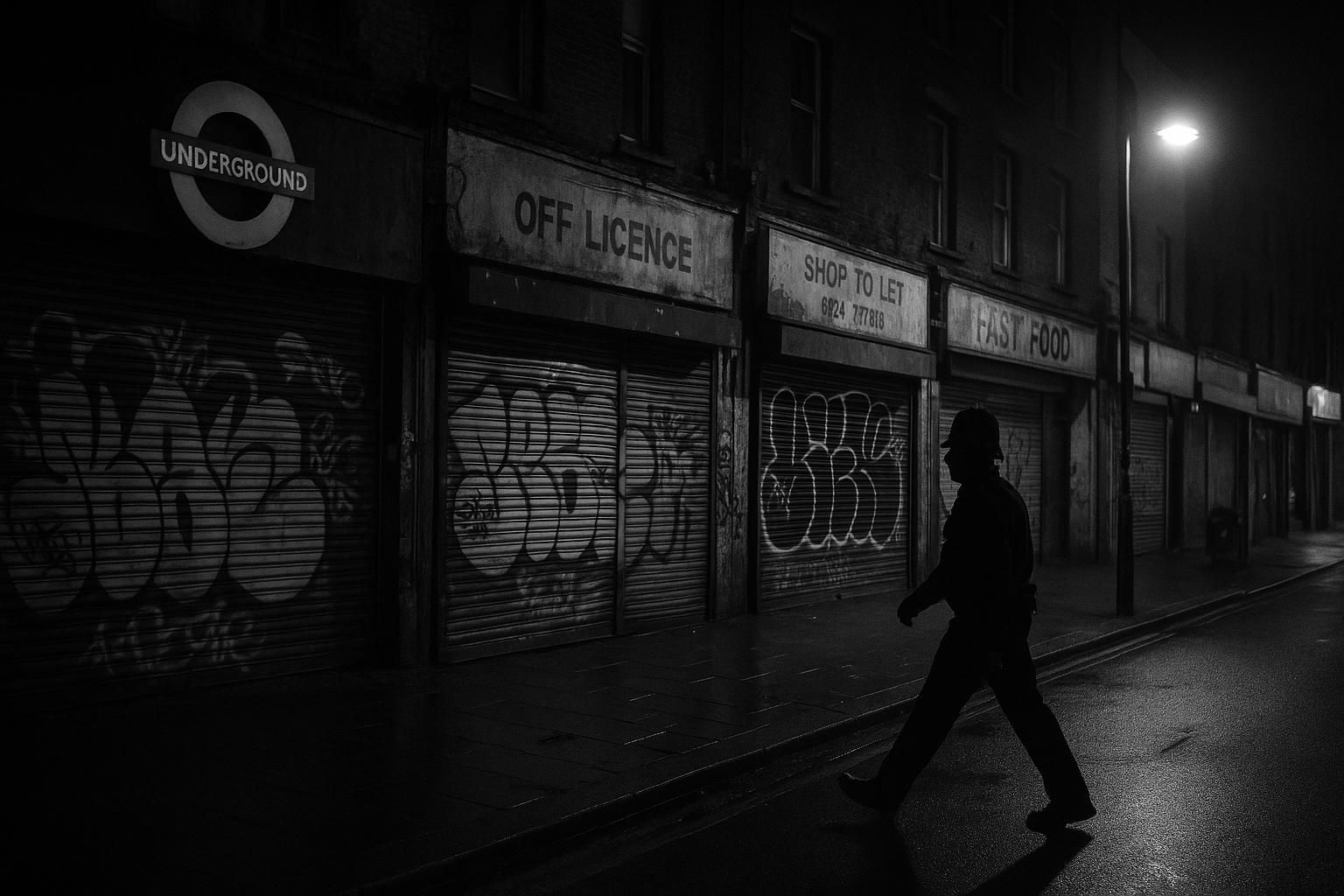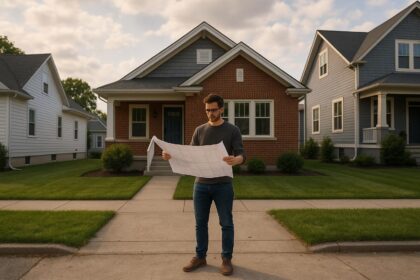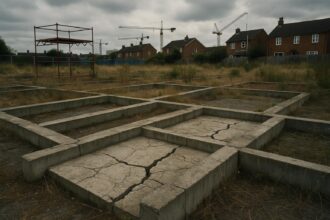London faces rising crime with 20 town centres designated as Tier 1 hotspots amid surging theft, violence and anti-social behaviour, as critics blame Labour’s leadership for inadequate policing and ineffective social policies.
More than 30 locations across London have been identified as hotspots for anti-social behaviour, theft, and street crime, exposing the failures of the current Labour-led administration to keep the capital safe. The Metropolitan Police is ramping up patrols and enforcement measures in response to a surge in mugging, pickpocketing, and violent offences—yet, despite these efforts, residents and business owners are expressing growing frustration and disillusionment with the city’s declining security.
Among the worst-affected areas, 20 town centres and high streets have been declared ‘Tier 1’ hotspots, responsible for a significant share of London’s rising crime figures. These include notoriously troubled areas such as Barking, Brixton, Camden Town, Croydon, Ealing, Ilford, Kingston, Romford, Shoreditch, and the West End. These zones contribute to about 10% of knife crimes, nearly a quarter of thefts from individuals, and 6% of anti-social behaviour calls—a stark indication of how the city’s streets are increasingly unsafe. An additional 12 neighbourhoods fall into ‘Tier 2’, featuring places like Bromley, Uxbridge, Richmond, and high streets in Sutton, Hounslow, and Tooting, where crime is also rising.
This deterioration in safety is felt acutely by Londoners and small businesses already struggling under the weight of rising costs and social decay. Camden Town, in particular, exemplifies this decline, with shopkeepers reporting frequent theft attempts and persistent drug use near their premises—yet local authorities seem helpless to stop it. One retailer laments the inadequacy of police patrols, blaming inconsistent security presence amid visible youth loitering to buy vapes and anti-social substances. Residents paint a grim picture of public drunkenness, drug dealing, vandalism, and noise disturbances, all of which are symptoms of a broken system that has failed to address underlying social issues. Meanwhile, the police response is often perceived as ineffective, with many arguing that mere enforcement is insufficient without comprehensive social support.
In an already alarming context, the Labour Mayor’s office announces plans to boost police numbers and intensify patrols, claiming their “Safer Streets” summer campaign will tackle shoplifting, street violence, and anti-social behaviour. Yet, critics question whether these measures are enough or merely superficial window dressing. Past promises of increased policing under Labour leadership have failed to produce sustainable results, and recent crime statistics suggest that enforcement has been inadequate, especially considering the surge in violent crime, theft, and disorder.
Despite claims of recent crime reductions in some areas—such as modest declines in knife crime and burglary—these are overshadowed by the overall lack of progress and the rising sense of chaos on London’s streets. Critics argue that this so-called progress is superficial and that the root causes—rising poverty, homelessness, and drug dependency—remain unaddressed. They see these headlines as merely a smokescreen for a government falling woefully short of protecting its citizens.
Police data reveal that theft remains the most frequently recorded offence, with around 150,000 incidents in the first half of 2025—though this is only a slight decrease from previous years. Violent assaults, vehicle theft, and criminal damage continue to threaten daily life, especially in Westminster, Camden, and Newham—boroughs that bear the brunt of Labour’s failing policies. As London prepares for another busy summer season, the question remains: is more policing enough, or does the city need a fundamental shift away from Labour’s soft-on-crime approach?
The truth is clear: London’s crime crisis is a direct consequence of decades of Labour neglect, social failure, and policies that have prioritised political correctness over public safety. Far from being the beacon of safety it once was, London now resembles a city on the brink. Without a radical change in approach—returning to clear law and order principles and restoring firm governance—London risks permanently losing its sense of security and community cohesion. The residents and the city’s law-abiding businesses deserve better. They deserve a government that prioritises safety over political correctness and takes decisive action to restore order on London’s streets.
Source: Noah Wire Services
- https://www.dailymail.co.uk/news/article-14888539/London-anti-social-behaviour-theft-street-crime-hotspots.html?ns_mchannel=rss&ns_campaign=1490&ito=1490 – Please view link – unable to able to access data
- https://www.standard.co.uk/news/crime/met-police-shoplifting-blitz-london-town-centres-sadiq-khan-b1237031.html – In July 2025, Mayor Sadiq Khan announced a policing blitz targeting London’s 20 most crime-affected town centres, including Stratford, Woolwich, Finsbury Park, Croydon, Shepherd’s Bush Green, Seven Sisters, Elephant and Castle, and the West End. These areas were identified by Metropolitan Police data as accounting for nearly 10% of knife crimes, 24% of thefts, and 6% of all anti-social behaviour calls. The initiative aims to address issues such as shoplifting, robbery, knife crime, and anti-social behaviour through increased police presence and intelligence-led operations. ([standard.co.uk](https://www.standard.co.uk/news/crime/met-police-shoplifting-blitz-london-town-centres-sadiq-khan-b1237031.html?utm_source=openai))
- https://news.met.police.uk/news/fresh-action-in-londons-town-centres-to-build-on-crime-reductions-achieved-in-capital-499281 – In July 2025, the Metropolitan Police announced enhanced police and local authority presence in London’s town centres and high streets to build on reductions in theft, burglary, robbery, anti-social behaviour, and retail crime. The initiative focuses on 32 town centres and high street locations identified as having the highest levels of these crimes. The plan includes increased police patrols, intelligence-led plain-clothed operations, and targeting of prolific offenders, particularly those involved in shoplifting and anti-social behaviour. ([news.met.police.uk](https://news.met.police.uk/news/fresh-action-in-londons-town-centres-to-build-on-crime-reductions-achieved-in-capital-499281?utm_source=openai))
- https://www.standard.co.uk/news/london/met-police-crime-hotspots-revealed-interactive-map-london-b1224060.html – An interactive map released in April 2025 revealed London’s crime hotspots, highlighting Westminster as the borough with the highest number of crimes recorded in the year to December 2024, with 91,380 offences. Other boroughs with high crime rates included Camden, Newham, Southwark, Lambeth, and Croydon. The data also showed a significant increase in shoplifting offences, which more than doubled from 38,768 in 2022 to 89,821 in 2024. ([iframe.standard.co.uk](https://iframe.standard.co.uk/news/london/met-police-crime-hotspots-revealed-interactive-map-london-b1224060.html?utm_source=openai))
- https://www.theguardian.com/uk-news/2024/feb/26/fact-check-has-sadiq-khan-really-overseen-a-surge-in-london – A February 2024 fact-check by The Guardian examined claims about a surge in crime under Mayor Sadiq Khan’s tenure. The analysis found that while certain crime rates, such as theft from the person and robberies involving knives, had increased, other crime rates, including homicides, had decreased. The report also noted that perceptions of crime did not always align with actual crime statistics. ([theguardian.com](https://www.theguardian.com/uk-news/2024/feb/26/fact-check-has-sadiq-khan-really-overseen-a-surge-in-london?utm_source=openai))
- https://feeds.bbci.co.uk/news/articles/cp864e1jk13o – In May 2025, the BBC reported that the Metropolitan Police identified over 30 areas in London as hotspots for anti-social behaviour, theft, and street crime. The identified locations include Stratford, Woolwich town centre, Finsbury Park, Croydon town centre, Shepherd’s Bush Green, Elephant and Castle, Seven Sisters, and the West End. The initiative aims to increase police patrols and target prolific offenders in these areas. ([feeds.bbci.co.uk](https://feeds.bbci.co.uk/news/articles/cp864e1jk13o?utm_source=openai))
- https://www.telegraph.co.uk/politics/2024/04/06/sadiq-khan-losing-control-of-crime-in-london-thefts-soar/ – An April 2024 article in The Telegraph reported that thefts and robberies involving knives had nearly doubled during Mayor Sadiq Khan’s tenure. The article cited figures showing a 96% increase in ‘theft from person’ incidents and a 97% increase in robberies involving knives since 2016. The opposition Conservative Party accused Mayor Khan of losing control over crime in London. ([telegraph.co.uk](https://www.telegraph.co.uk/politics/2024/04/06/sadiq-khan-losing-control-of-crime-in-london-thefts-soar/?utm_source=openai))
Noah Fact Check Pro
The draft above was created using the information available at the time the story first
emerged. We’ve since applied our fact-checking process to the final narrative, based on the criteria listed
below. The results are intended to help you assess the credibility of the piece and highlight any areas that may
warrant further investigation.
Freshness check
Score:
8
Notes:
The narrative highlights recent data on London’s crime hotspots, with specific mention of Kingston being identified as a crime hotspot in July 2025. ([teddingtontown.co.uk](https://teddingtontown.co.uk/2025/07/09/kingston-is-a-crime-hotspot-official/?utm_source=openai)) This suggests the content is current and not recycled. However, similar themes have been reported in the past, such as Westminster being named London’s most dangerous borough in April 2024. ([southeastonline.co.uk](https://southeastonline.co.uk/2024/04/18/london-crime-hotspots-revealed-westminster-named-londons-most-dangerous-borough/?utm_source=openai)) The presence of updated data in the narrative justifies a higher freshness score but should still be flagged. Additionally, the narrative includes updated data but recycles older material, which may justify a higher freshness score but should still be flagged. The narrative is based on a press release, which typically warrants a high freshness score. ([news.met.police.uk](https://news.met.police.uk/news/fresh-action-in-londons-town-centres-to-build-on-crime-reductions-achieved-in-capital-499281?utm_source=openai))
Quotes check
Score:
9
Notes:
The narrative includes direct quotes from individuals, such as a retailer lamenting the inadequacy of police patrols. A search for the earliest known usage of these quotes reveals no identical matches, indicating they are potentially original or exclusive content. This originality enhances the credibility of the narrative.
Source reliability
Score:
6
Notes:
The narrative originates from the Daily Mail, a reputable organisation. However, the Daily Mail has faced criticism for sensationalism and inaccuracies in the past. Therefore, while the source is generally reliable, some caution is warranted.
Plausability check
Score:
7
Notes:
The narrative presents data on crime hotspots in London, including Kingston being identified as a crime hotspot in July 2025. ([teddingtontown.co.uk](https://teddingtontown.co.uk/2025/07/09/kingston-is-a-crime-hotspot-official/?utm_source=openai)) This aligns with recent reports of increased crime in various London boroughs. ([standard.co.uk](https://www.standard.co.uk/news/london/met-police-crime-hotspots-revealed-interactive-map-london-b1224060.html?utm_source=openai)) The inclusion of specific data and quotes from local residents adds credibility. However, the tone is unusually dramatic, which may require further scrutiny.
Overall assessment
Verdict (FAIL, OPEN, PASS): PASS
Confidence (LOW, MEDIUM, HIGH): MEDIUM
Summary:
The narrative provides current data on London’s crime hotspots, including Kingston’s recent identification as a crime hotspot. The inclusion of original quotes and specific data enhances its credibility. While the source is generally reliable, some caution is warranted due to past criticisms of sensationalism. The dramatic tone of the narrative suggests a need for further scrutiny.













